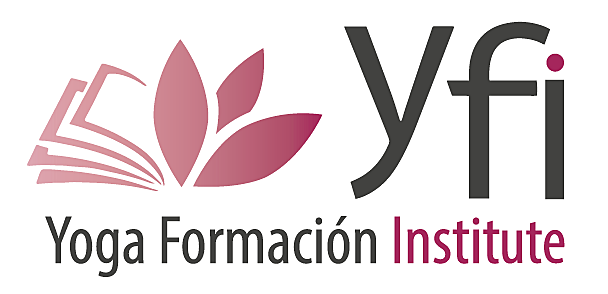Mindfulness
Mindfulness is a quality of human consciousness characterised by an accepting awareness of and enhanced attention to the constant stream of lived experience. Being mindful increases engagement with the present moment and allows a clearer understanding of how thoughts and emotions can impact our health and quality of life.
Mindfulness can be cultivated through meditation practice. Mindfulness meditation practices have been formalised in programs such as Mindfulness-Based Stress Reduction (MBSR), Mindfulness-Based Cognitive Therapy (MBCT), and Mindfulness-Based Relapse Prevention (MBRP) as well as other programs. Although mindfulness is an inherent human capacity that has been examined introspectively for millennia, scientific interest in mindfulness is burgeoning in the fields of medicine, psychology, social work and business.
You don't meditate to "make a killing." You do it so work doesn't kill you.
"When I [Arianna Huffington] collapsed in April 2007, I was—by our society’s definition—very successful, but by any sane definition of success, I was not," Huffington said, "As long as our culture defines success as money and power, we’re stuck on a treadmill of stress, sleep deprivation, and burnout."
" The statistics suggest we don't know how to turn off. Forty-two percent of people check their phones on vacation. We're taking fewer vacation days than we're allotted. And at the same time, a Gallup Poll shows that 70% of us also admit to having "checked out" or "actively disengaged" at our jobs. It's the work hamster wheel du jour: never checking out from our jobs, but barely checking in.""Mindfulness can turn into a tool to teach people to cope while they continue on the same old course that caused the problems they sought meditation to address in the first place. In order for mindfulness to be genuine article, it has to be connected to others, to the community, to the larger environment."
You don't meditate for success. Meditation helps you keep your edge.
Each time we stand up against a habit—whether it’s checking our smartphone during a conversation or reacting defensively to a co-worker’s passing remark—we weaken the grip of our conditioning. We lay down new tracks in the brain and fashion new synaptic connections. We become less likely in the future to default to patterns that can trap us into being satisfied with ineffective and outmoded strategies. We take steps to improve not only how we are at work but the work environment itself.

Full Consciousness
Living with the full awareness of being in the present moment gives you a wealth of experience that has many benefits. You enjoy more of life and your relationships. You are more focused and efficient in everyday tasks. You reduce stress and move fluidly and pleasantly in the world.
Novice
You have not taken a course of mindfulness or meditation but are very curious to learn more about the practice, about the Yoga Center approach, and how to continue in the line of Jon Kabat-Zinn.
We usually have a regular mindfulness session of one hour every Friday evening. You can also start with a workshop for beginners (usually offered one Saturday a month). Or you can sign up directly for our beginners, level I, which consists of 8 sessions of two hours.
Courses: Introduction to Mindfulness
In our introductory 'mindfulness' courses the Buddhist tradition comes together with the concepts of modern psychology. Living with the full awareness of being in the present moment gives you a wealth of experience that has many benefits. You will enjoy life more and deepen your relationships. You will become more focused and efficient. You will be less stressed.Kate Fitzroy teaches the course.

For those who have some practice ...
Perhaps, you've done a course of 8 sessions with us or with another institution. Or you have attended our meditation classes for at least six months, or have your own daily meditation practice, or are a teacher of Yoga. If you have experience, you can start directly at level II. (We are happy to answer any questions about what level is best for you). We offer the following:
- Level 2.1, a course of 4 two hour sessions of deepening weekly practice, followed by
- Level 2.2, a course of 4 two hour sessions of even deeper practice (weekly)
- Thematic courses that delve into an aspect of practice (eg, the qualities emphasized by Jon Kabat-Zinn). Usually a monthly session.
For Everyone
Intensive thematic courses are offered over 9 hours during a weekend. See information on the website of Yoga Center.

20 reasons to practice mindfulness
Boost Your Health
- Increases immune function
- Reduces pain
- Reduces inflammation at the cellular level
Boost your happiness
- Increase Positive Emotion
- Reduces depression
- Reduces anxiety
- Reduces stress
Boost your social life
- Increase social connectedness and emotional intelligence
- It makes you more compassionate
- It makes you feel less alone
Boost Your Self
- Improve your ability to regulate their emotions
- Improve your ability to introspect, your brain is changed (for the better)
- Increases gray matter
- Increase the volume in related areas regulating emotions, positive emotions and self-control
- Increase cortical thickness in areas related to paying attention
Improve your productivity
- Increase your focus and attention
- Improve your ability to multitask
- Improve your memory
- Improve your ability to be creative and think outside the box
- It makes you wiser
You may also be interested in:
Our privates: private classes
Our Mindfulness sessions: wellbeing mindfulness

